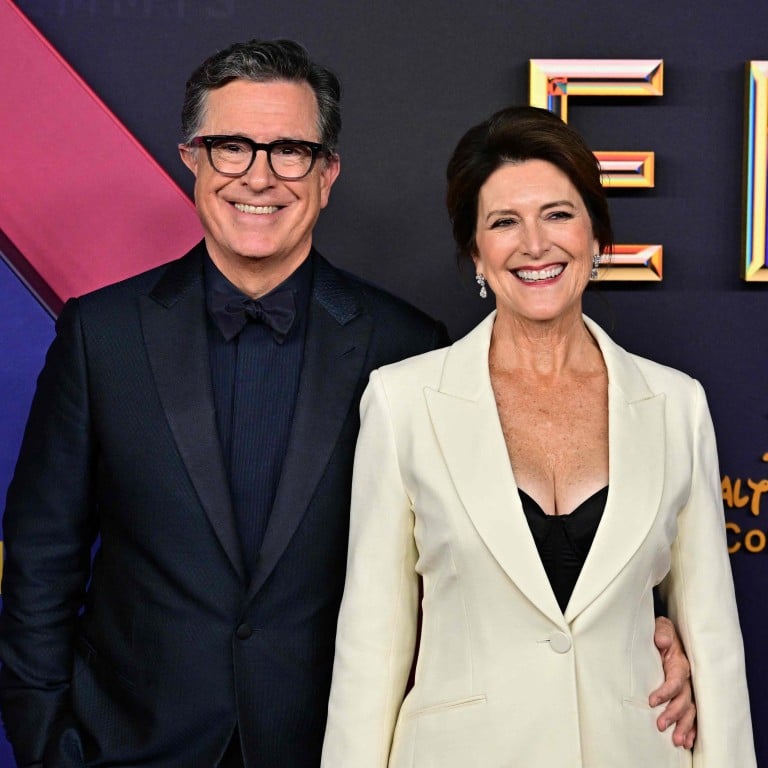As CBS Quietly Prepares to Cancel The Late Show, Stephen Colbert’s Farewell Becomes a Testament to Grace, Humor, and Healing
As CBS prepares to cancel The Late Show in May 2026, a wave of melancholy and gratitude hangs over late-night television. Stephen Colbert — once celebrated for his razor-sharp political satire — now stands as one of television’s most profoundly human storytellers. Over the years, he transformed America’s nightly laughter into a shared language of empathy, loss, and hope. His evolution from biting commentator to what fans lovingly call television’s “grief counselor” marks one of the most remarkable transformations in modern broadcast history.
From Irony to Intimacy
When Colbert took over The Late Show in 2015 following the legendary David Letterman, expectations were sky-high. Viewers expected the sharp, satirical wit that defined The Colbert Report. But what emerged instead was something far more layered — a talk show that blended humor with humility, politics with prayer, and wit with warmth.

Gone was the parody persona of “Stephen Colbert,” the pompous conservative caricature that once ruled Comedy Central. In his place stood the real Stephen — thoughtful, introspective, and unafraid to reveal his humanity. The transition wasn’t immediate. Critics initially questioned whether he could find his voice amid louder, flashier hosts. But then came the moments that changed everything — the heartfelt monologues after national tragedies, the quiet interviews with grieving guests, and the nights when laughter gave way to silence. Those moments didn’t just define The Late Show; they redefined what late-night television could be.
Turning Late Night into a Sanctuary
Night after night, Colbert transformed his studio into something more intimate than a stage — a sanctuary. During years marked by political turmoil, cultural division, and a global pandemic, his show became a place where people could gather, even if only through a screen.
He didn’t just joke about the news; he absorbed it, processed it, and reflected it back with compassion. His ability to balance humor with humanity turned viewers into a community. They weren’t just watching a show — they were sharing an experience.
Whether comforting his audience after tragedy or offering a platform for artists, scientists, and thinkers to express vulnerability, Colbert proved that late-night television could be more than escapism. It could be healing.

As his wife, Evie McGee-Colbert, said during a rare on-air appearance, “He’s pouring his soul into every night — treasuring each second with you.” Those words resonated deeply with millions who have felt that same connection for nearly a decade.
The Love Story Behind the Laughter
Part of Colbert’s enduring charm has always been his authenticity — especially in how he speaks about love, faith, and family. His relationship with Evie McGee has been a quiet anchor throughout his career. Their marriage, marked by humor, devotion, and tenderness, has shaped the emotional tone of his show.
“She’s the reason I can do this,” Colbert once said. “Everything I believe in, everything I try to express — it’s because of her.”
As he nears the end of his Late Show tenure, Evie stands once again as his silent co-star — grounding his farewell in love and truth.
The End of an Era for CBS
CBS’s decision to end The Late Show in May 2026 reflects a larger shift in late-night television as networks grapple with changing viewing habits and the rise of streaming platforms.
“There’s a bittersweet poetry to it,” one CBS executive noted. “Stephen helped redefine what late-night could be. And now, as that world evolves, he gets to end it on his own terms — at the height of his empathy, not exhaustion.”
Few hosts have left behind such a deeply emotional legacy. When The Late Show airs its final episode, it won’t just mark the end of a program — it will symbolize the close of a chapter in American cultural life.

A Legacy Written in Laughter and Tears
What sets Colbert apart isn’t just his comedic timing or intellect, but his willingness to feel. He has spoken openly about faith and forgiveness, about the pain of losing his father and brothers in a plane crash when he was just ten years old — and how that tragedy taught him to embrace joy more fiercely.
That sincerity has made The Late Show one of the most emotionally resonant programs in modern television. When he laughed, it felt like permission to breathe again; when he cried, it felt like America cried with him.
As his final season unfolds, every episode feels like a love letter to the audience who grew with him through wars, elections, and pandemics. His monologues now carry the weight of farewell — but also the lightness of acceptance.
The Final Bow

When The Late Show with Stephen Colbert takes its final bow in May 2026, it will mark more than just the end of a broadcast — it will close the curtain on an era when late-night television still had the power to unite, console, and make meaning out of chaos.
Fans are already bracing for an emotional goodbye. As Evie McGee-Colbert so perfectly put it: “He’s treasuring each second with you.”
Because in the end, Stephen Colbert was never just a comedian or a host.
And when the lights finally dim on The Late Show, one thing will remain certain:
Stephen Colbert didn’t just host television — he healed it.






